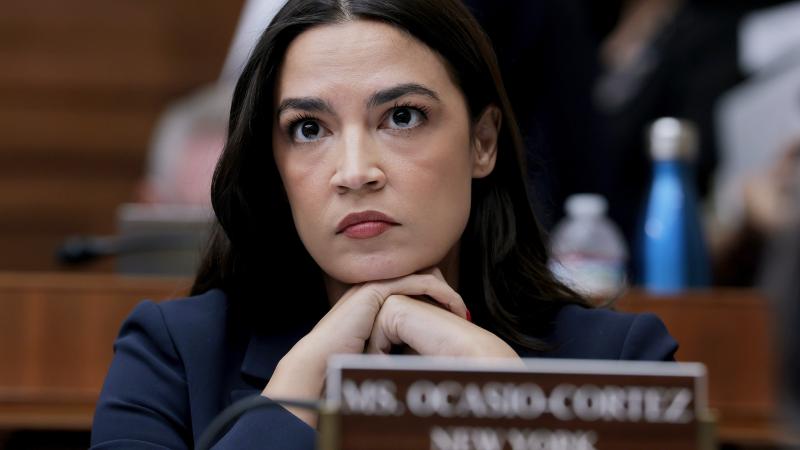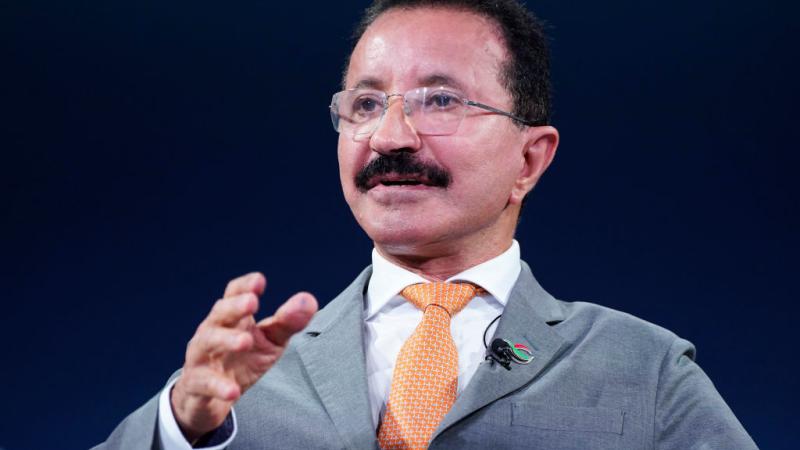TikTok ban or Trojan horse? GOP rep warns new bill's 'election interference' language chills speech
Ohio Republican fears RESTRICT Act would create "a domestic police state."
A Senate bill being sold as a TikTok ban would prohibit anyone from "interfering in" federal elections, which could "be weaponized to restrict free speech," warns Rep. Warren Davidson (R-Ohio).
The Restricting the Emergence of Security Threats that Risk Information and Communications Technology Act, or RESTRICT Act, would give broad, largely unchecked powers to the secretary of commerce to identify and combat activity deemed to pose "an undue or unacceptable risk" of "interfering in" federal elections.
The bill, which was introduced in the Senate last month and quickly gained wide bipartisan support, doesn't mention TikTok, unlike a previous bill passed by Congress that banned the social media app from government devices.
TikTok has aroused concern among lawmakers over the potential threats the popular Chinese-owned video sharing platform poses to national security, user data privacy and teen mental health.
The bill would grant sweeping new powers to the secretary of commerce to police transactions related to information and communications technology services and products provided by companies linked to six designated foreign adversaries (China, Cuba, Iran, North Korea, Russia, and Venezuela).
Sen. Mark Warner (D-Va.) told Wired last month the bill would empower the commerce secretary with new tools to combat transactions posing perceived security threats, including "forcing a company to sell off its assets, up to the point of banning."
Other lawmakers, such as Sen. J. D. Vance (R-Ohio) have raised concerns that the RESTRICT Act is a new Patriot Act, a law that granted the federal government extensive new surveillance powers following the 9/11 terrorist attacks.
However, the RESTRICT Act also includes a section that assigns the Commerce Department broad new powers to crack down on activity that "poses an undue or unacceptable risk" of interference in federal elections.
Section 3(a)(1)(C) of the bill says that the secretary of commerce "in consultation with the relevant executive department and agency heads, is authorized to and shall take action to identify, deter, disrupt, prevent, prohibit, investigate, or otherwise mitigate, including by negotiating, entering into, or imposing, and enforcing any mitigation measure to address any risk arising from any covered transaction by any person, or with respect to any property, subject to the jurisdiction of the United States that the Secretary determines — poses an undue or unacceptable risk of ... interfering in, or altering the result or reported result of a Federal election, as determined in coordination with the Attorney General, the Director of National Intelligence, the Secretary of Treasury, and the Federal Election Commission."
"Everything about the RESTRICT Act threatens our First and Fourth Amendment rights," Rep. Warren Davidson (R-Ohio) told Just the News on Friday. "It creates a domestic police state that can be weaponized to restrict free speech that is fundamental to our election process. Its sponsor and cosponsors should repent and withdraw the bill."
Davidson told the John Solomon Reports podcast earlier this month that the RESTRICT Act "is a domestic surveillance state bill" that is "Orwellian in its scope."
Rep. Ralph Norman (R-S.C.) worries the RESTRICT Act "is too risky and gives too much unchecked power to the executive branch and unelected officials," he told Just the News on Thursday. "We are always skeptical and on high alert when ceding ANY authority to this admin."
The bill gives the executive branch "the judge and jury on what they consider a danger to America," he told the "Just the News, No Noise" TV show earlier this month.
Warner assured Wired that communications services companies, even those that are foreign-based, have "First Amendment rights."
"So what we've done," he told the outlet, "is to try and say, 'Let's make this rules-based.' We think that will stand up in court."
In an interview Thursday with Just the News, Republican election lawyer Cleta Mitchell called the RESTRICT Act "the latest version of the Alien & Sedition Act."
"We are going to do everything we can to kill" it, vowed Mitchell, who chairs the Election Integrity Network.
Phill Kline, director of election watchdog nonprofit The Amistad Project, told Just the News on Thursday that the election portion of the RESTRICT Act would require the prosecution of "half the people in the intelligence community in the last election," an allusion to the letter signed by 51 former intelligence officials in October 2020 that portrayed the Hunter Biden laptop story as Russian disinformation, labeling it "misleading, if not false."
Kline recalled that government intelligence officials cooperated "with social media" content moderators in 2020 to "silence Americans from speaking" and in 2016 provided "false representations by FBI to the FISA court" to gain surveillance authority to probe now-discredited rumors of Trump-Russia collusion. Why would Congress give "these same people more power?" he asked.
"This continues to become more frightening as they believe the answer is distancing government further from people, rather than transparency," Kline said. "They're going to destroy any faith in the election process with this type of intimidating approach to how elections should be run. Elections should be open, transparent, and inclusive, not fraught with criminal statutes to intimidate people."
Many concerns have been raised about irregularities in the 2020 presidential election, which then-President Trump has claimed was stolen. Additional issues arose during the 2022 midterm elections, especially in Arizona, where the GOP candidates for governor and attorney general are both challenging their narrow defeats in court.
Kline said that the RESTRICT Act is Congress' "fix for their failure," as their election policies have caused people to lose their faith in elections.
"Their fix is more criminal laws on the books to punish Americans," Kline said, adding that "they seem to think the answer to every problem is not examine their own conduct, but more rules and laws on people who question their conduct."
Warner's office has not responded to a request for comment on this article.
The Cybersecurity and Infrastructure Security Agency (CISA) released a statement following the November 2020 presidential election, saying that it "was the most secure in American history."
After the November 2022 midterm elections, CISA said in a statement, "We have seen no evidence that any voting system deleted or lost votes, changed votes, or was any way compromised in any race in the country."
















